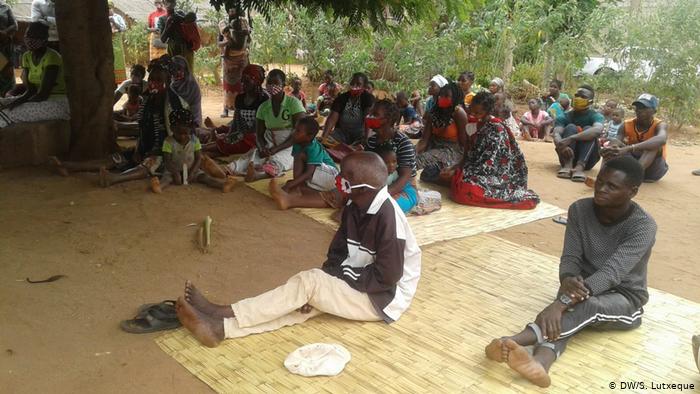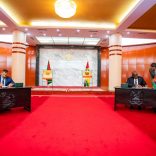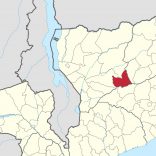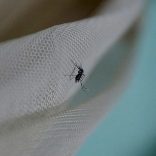Mozambique: Chapo and Aga Khan sign agreement - AIM
Bishop of Pemba: Displaced people “don’t just need food, they need to be heard”

File photo: DW
Small groups of displaced people affected by the Cabo Delgado insurgency began to receive psychological support from the Catholic Church and local organisations this week, Luiz Fernando Lisboa tells DW.
Many of the internally displaced people (IDPs) have been affected by the violence of the Cabo Delgado insurgency. “We realised that people don’t just need food; they need to be heard – their sorrows and their stories. They need that support,” Bishop of Pemba Dom Luiz Fernando Lisboa says.
The bishop told DW Africa that, within the internally displaced, “everyone is traumatised”, and that Covid-19 has unfortunately moved into the background.
DW Africa: Some displaced people are likely to have developed trauma or fear of war. Do you know if there is any kind of psychological assistance or therapy for this group?
Luiz Fernando Lisboa (LL): We started exactly this psychological assistance today [18.08]. The church took the initiative. We have two sisters here who are psychologists. They, with the help of other organisations on the ground, set up a four-day preparation course for some volunteers, including nuns, priests, and well-prepared lay people, young people. Twenty-seven people were trained. Next week, another 30 or 32 will be trained.
Work has already started in one of the camps this Tuesday (18.08). It was a matter of sitting down with a group of ten people and talking for about two hours. At least four meetings will be held with the same group and the same pair [of facilitators], to allow people to tell their traumas, to tell everything that has happened, so that they take out what is inside that hurts and that harms. Because we realise that people don’t just need food, they need to be heard – their sorrows and their stories. They need this support so that they can then raise their heads, look forward and continue to fight. There are many people who are paralysed and perplexed by everything that has happened.
DW Africa: Which age group is most affected? It’s the kids, the adults …
LL: Everyone is affected. Children, as they do not know how to do anything else, play, but that doesn’t mean they are not traumatised. Children saw things and went through terrible things. Some have lost their parents, others are separated from their relatives because people are displaced elsewhere. Young people are very afraid. The girls, because many were kidnapped. So, every displaced girl is afraid of being kidnapped. Young boys are also afraid of being kidnapped to be part of the group [of the insurgents].
The ladies do not have their machambas [cultivated plots], they do not have their things, they could not bring their belongings, they are living on favours, borrowing a pot, making food, who knows how. The men, because they have lost their jobs and homes, they do not know how to conduct their families now. Everyone is traumatised, unfortunately.
DW Africa: And what has it been like to assist IDPs in Covid-19 times?
LL: It has been a very big challenge. Unfortunately, I have repeated something which sounds almost like a buzzword, but which cannot be different: Covid-19 for us is in the background. Although we are taking all care to wear a mask – we distribute thousands of masks in the camps and to people in the neighbourhoods – but the population has not yet realised the seriousness of this. And those who are displaced are concerned with their pain, with their life, with the things which are missing – the lack of their home, their machambas – and they are not very concerned with Covid-19. Although lectures were given, explanations on why to wear the mask and the importance of physical distance, we arrive at these places and everyone is gathered as if nothing is happening in the world.













Leave a Reply
Be the First to Comment!
You must be logged in to post a comment.
You must be logged in to post a comment.